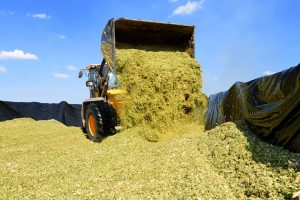 THE NATIONAL PIG ASSOCIATION (NPA) has unveiled plans to “achieve minimum use of antibiotics” on pig farms through a new antibiotic stewardship programme.
THE NATIONAL PIG ASSOCIATION (NPA) has unveiled plans to “achieve minimum use of antibiotics” on pig farms through a new antibiotic stewardship programme.
The aim of the programme will be to collect more data on antibiotic use in pig farms, which NPA said will be achieved through the industry’s newly-introduced online medicines book, created by ANDS Pork working with Veterinary Medicines Directorate. Once the online ‘book’ has been populated, NPA said producers will be able to benchmark their antibiotic use with anonymised data from other farms and work with vets to bring down use.
NPA chief executive Dr Zee Davies said: “We recognise and share society’s concems about the level of antibiotic use in human and livestock medicine. hi particular we acknowledge the risk, albeit small, of antibiotic resistance developing in bacteria in pigs and this resistance spreading to humans.”
Late last year, scientists discovered a gene that makes bacteria resistant to colistin – a class of last-resort antibiotics – in humans and livestock animals in China. Reporting in medical journal the Lancet, the scientists pointed to an apparent link between animal agriculture and the spread of this anti-biotic resistant gene in animals and humans.
Shortly before Christmas, follow-up research found that the resistant gene, first discovered on a pig farm in China, had spread to several European counties and had been detected in an infectious bacteria sample in the UK.
Although NPA’s senior policy advisor Dr Georgina Crayford maintained on Tuesday that “Antibiotic resistance in humans is largely caused by over-use and misuse of antibiotics in human medicine,” she acknowledged: “The British pig industry has a duty to ensure it does not contribute to the problem.”
Dr Crayford said: “Overall sales of antibiotics for use in livestock in the United Kingdom sit mid-range compared to other European Union countries. We acknowledge the current perception that antibiotic use in our pig industry may be higher than in some other countries, but we don’t have my data to demonstrate what our actual on-farm usage is, hence the need for action.”
NPA claimed that, in light of the findings on colistin resistance in bacteria from UK pigs, the Pig Veterinary Society has re-categorised this product as Class 3 in its prescribing principles for antimicrobials, meaning colistin may only be prescribed as a last-resort when no other options are available.
Reacting to the announcement on Wednesday, a spokesperson for the Alliance to Save our Antibiotics, a coalition of fanning and environment groups commented: “The Alliance welcomes the NPA’s antibiotic stewardship programme, and supports each of the six strands outlined within it. Efforts to collate antibiotic usage data in this sector will be key to setting achievable and ambitious reduction targets, and better education in disease mitigation will be crucial to achieving these targets.
“However, we would also stress that routine mass medication of groups of animals — a form of administration which currently accounts for circa 90% of total antibiotic use in the UK and is commonly used in the pig sector — most also be tackled if the NPA’s programme is to be successful.
“This must be accompanied by measures to improve animal health and welfare and reduce the need for antibiotics in the first place; including lower stocking densities, later weaning for piglets, improved breeding which focuses less on productivity and more on animal health, and greater access to the outdoors.”
















Add Comment